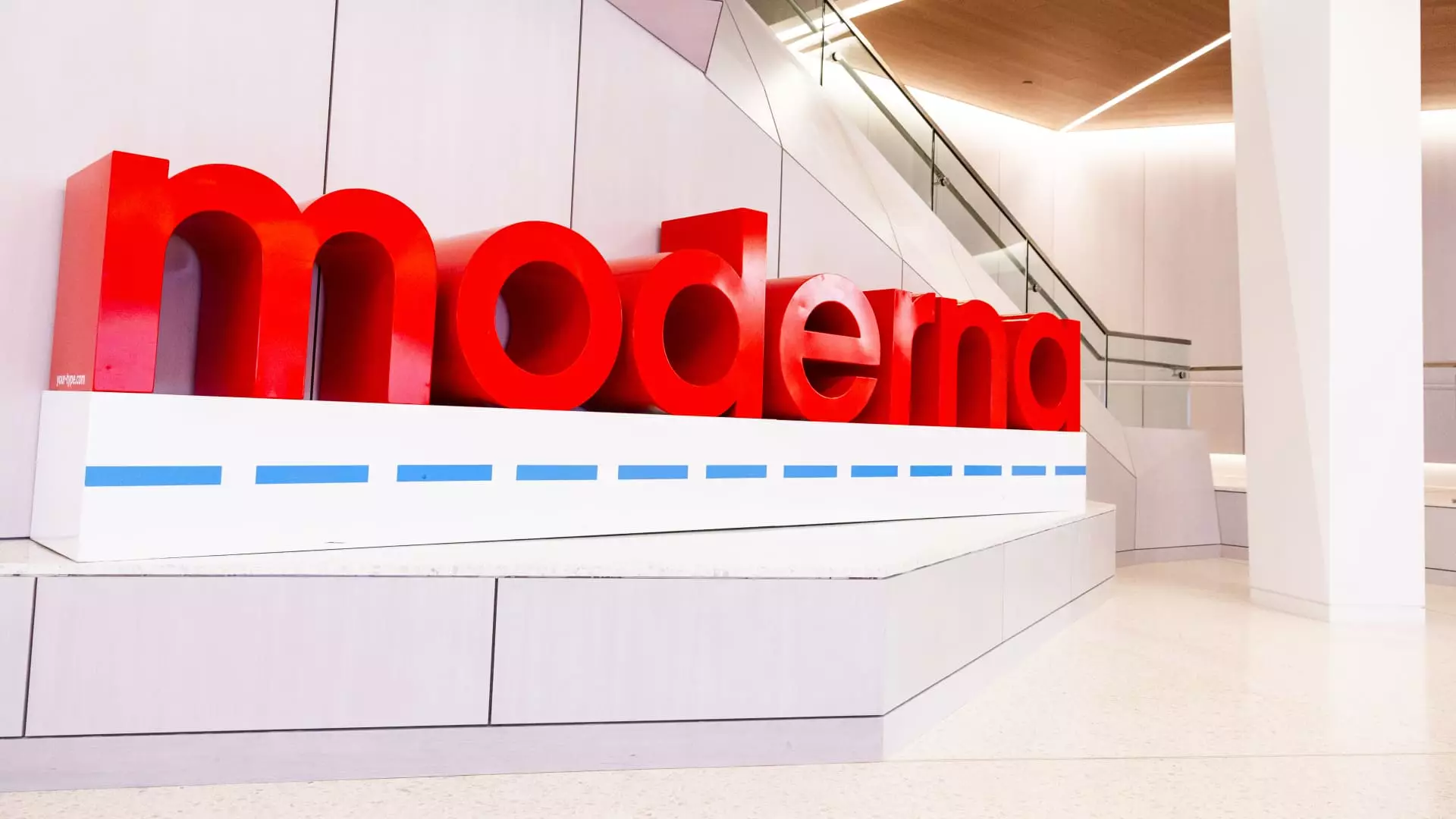Moderna Inc. has made headlines recently by reporting unexpected profitability in the third quarter of this year. Following a slew of predictions that painted a gloomy picture for the biotech company, the announcement of a $13 million net income, or 3 cents per share, not only overshot Wall Street expectations but also marked a triumphant turnaround from a staggering net loss of $3.63 billion in the previous year. This remarkable transition is attributed to intensive cost-cutting measures and anticipates significant developments in its product lineup, particularly in the wake of the Covid-19 pandemic.
To navigate the post-pandemic landscape where revenues from Covid vaccines are dwindling, Moderna has embarked on aggressive cost reductions. The company has set an ambitious goal to save $1.1 billion by the year 2027. This initiative is especially crucial as the ongoing decline in its primary Covid vaccine business mandates a shift in how the company operates. By slashing costs and optimizing operations, Moderna appears committed to stabilizing its financial foundation as it seeks avenues for growth in a competitive market.
In the third quarter, the company’s cost of sales plummeted to $514 million, showcasing a remarkable 77% decline from the prior year. This stark reduction is indicative of strategic financial management, where Moderna effectively adjusted to fluctuations in demand and altered market conditions. The company noted that this decrease included $214 million in write-downs of unused Covid vaccine doses. Such inventory management not only helps mitigate losses but also signals Moderna’s readiness to recalibrate its product offerings based on current market dynamics.
Moderna’s third-quarter results also marked the debut of its respiratory syncytial virus (RSV) vaccine, illustrating the firm’s foray into new markets. Although sales for this product were lower than anticipated due to its late-season approval, it nonetheless adds diversity to Moderna’s portfolio. The company reported $10 million in U.S. RSV shot sales, but this figure fell short of analyst expectations that forecasted $132 million. The learning curve from this rollout reveals a critical lesson about timing and market readiness: introducing new vaccines requires more than just regulatory approval; it must coincide with market demand cycles.
Furthermore, the company’s forthcoming plans to apply for approval of a “next-generation” Covid vaccine, along with a combination shot for both Covid and the flu, provide a glimpse into its forward-thinking strategy. With 2024 on the horizon, these launches could be pivotal in boosting revenues and solidifying Moderna’s position in a post-pandemic healthcare landscape. The efficiency gains from an earlier launch of its new Covid vaccine have already shown promise, suggesting that Moderna might be well poised to capitalize on consumer demand sooner than its competitors.
Despite these positive indicators, Moderna faces significant challenges moving forward. The company’s stock has witnessed a decline of nearly 50% this year as investors grapple with uncertainty regarding its long-term viability in the vaccine market. The factors behind this market resistance include intensified competition, especially in respiratory vaccines, and shifting governmental policies regarding vaccine purchases and distribution.
As Moderna transitions from a Covid-centric business model to a broader array of medical solutions, it’s vital for the company to maintain investor confidence. It has a promising research and development pipeline comprising 45 products, with plans to launch around 10 over the next three years. This ambitious pipeline includes personalized cancer vaccines and standalone flu shots, indicating a robust commitment to innovation.
While Moderna’s recent third-quarter results demonstrate an effective pivot and resilience in the face of adversity, the company must navigate a complex landscape of shifting consumer expectations, regulatory challenges, and competitive pressures. The efficacy of its cost-reduction strategies, the successful launch of new products, and the cautious optimism of investors will collectively determine whether Moderna can sustain its newfound profitability.
Ultimately, this is a watershed moment for the biotech firm. As Moderna forges ahead, its success will rely heavily on its ability to adapt and respond to the ever-evolving health care landscape, which demands not only innovative solutions but also efficient execution and strategic foresight. In the quest for recovery and growth, the entire industry will be watching closely how Moderna positions itself for the future.


Leave a Reply